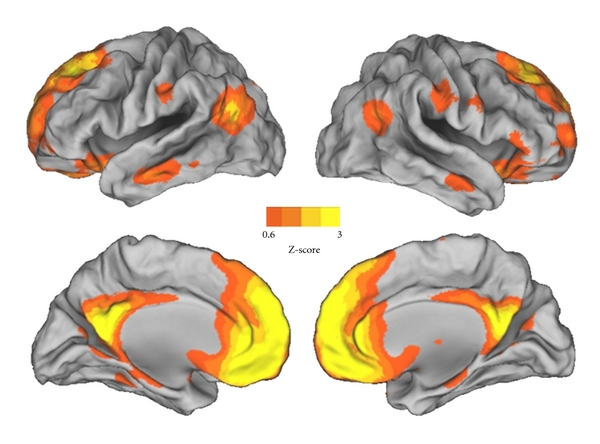Apparently hell is not other people but your own mind.
It seems that everybody always has to be engaged and entertained, from the divertissements of Netflix and swiping time away with your phone to a fevered expectation to keep doing stuff — be productive and social and busy! — as if all that defined a full life.
The idea that doing something trumps doing nothing is no new phenomenon that’s just been ushered in by the age of smartphones and Twitter and keeping up with various Kardashians. In 1670, French mathematician and philosopher Blaise Pascal wrote in his Pensées, “All of humanity’s problems stem from man’s inability to sit quietly in a room alone.”
Pascal was right. The aversion to tuning into yourself and hanging out in your own head has deep, human consequences for how we think, create, learn, lead, and are even ourselves.
When Doing Anything At All Beats Just Thinking
Psychologist Timothy Wilson discovered just how much people don’t want to be alone with their thoughts. In a series of studies, people went into an empty room without their belongings — for 15 minutes at most — to entertain themselves with just their thoughts. Most people didn’t find this enjoyable — to a point that it took Wilson and his colleagues by total surprise.
He told The Atlantic that they hadn’t expected the assignment so difficult for people: “[W]e have this huge brain that’s stocked full of pleasant memories and has the ability to generate fantasies, and surely it can’t be that hard to spend a few minutes enjoying yourself with your thoughts. And we just kept doing study after study finding that—for many people, anyway—not so much.”
They tested this across 11 variations to make sure they weren’t missing something — changing locations, providing prompts, testing wider ranges of people. The results kept pointing to the same finding: “people prefer doing to thinking.”
In fact, people found spending 15 minutes with themselves so unappealing that many preferred to give themselves electric shocks. In one session testing whether even unpleasant activity was preferable to no activity, the researchers gave the option to self-administer shocks by pressing a button during the thinking period.
An alarming number of people chose to shock themselves (especially men, 67% of them chose to do so versus 25% of the women). These same participants had already reported in the first part of the experiment that they’d pay to not to receive shocks and had received an explicit explanation that “the primary goal was to entertain themselves with their thoughts.”
The aversion to just thinking was so great for some people that they opted to shock themselves for free.
The Science Behind Your Brain’s Default Mode Network
The glaring problem with this inability to just sit and be with ourselves is that the type of thinking that takes place when we’re looking inward is what helps make us who we are.
This inward-directed thought is called default mode processing, the default resting state of your mind — though, as neuroscientist Mary Helen Immordino-Yang explains in a comprehensive research review, this resting state is anything but idle. The brain uses the default mode of processing for “self-awareness and reflection, recalling personal memories, imagining the future, feeling emotions about the psychological impact of social situations on other people, and constructing moral judgments.”

When the brain’s default mode network yields incredible and useful insight, allows us to process higher-level, abstract information including social, emotional, and moral implications, helps us learn about ourselves, and derive meaning from our experiences — it’s hard to justify why we should so readily trade all this away for a bursting calendar, another round of Candy Crush, or electric shocks.
Pro Tip: Do also check our article where we have explained The Science behind slow thinking.
How to Get the Freedom to Think
We need more downtime — the freedom and space not to have to pay attention to ceaseless external distractions and demands. It’s through reflection, daydreaming, and introspection that we make sense of information and experiences to come up with new insight and ideas.
At work, especially, this concept of “just thinking” seems especially frivolous and even risky because it looks so much like you’re being lazy and not doing anything. Yet anyone who touts employee autonomy as a value should extend that understanding of our psychological need for a sense of control and self-determination over what we do to how we think.
A few things you can do to encourage more default mode processing and turning inward include meditation and taking more walks and naps, while at work you can start off with these ideas:
- Resist the open office. Noise and interruptions are rampant in open offices, which is basically the total opposite of being alone with your thoughts. Find — or if it’s in your power, create — spots where you can find some sense of solitude and quiet.
- Give people real permission to think. Innovative companies have events like hackdays or policies where a certain percentage of time can be used for your own ideas and exploration. 3M’s revolutionary Post-It note was born of a daydream, after all. But this is often more a productivity design to just do more. Take this a step further and make it clear that you trust people to take a considerable percentage of time out — just to think, daydream, and reflect. It’s part of the job.
- Build some slack into the schedule. Without breathing space from unreasonable time and other external pressure — and a sense of safety (that you’re not going to get fired for taking some downtime) — it’s an immense challenge to choose thinking over knocking something else off your to-do list.
Have a “no meeting” schedule, setting off whole days or certain times of the day that are meeting-free so people have a generous sense of time in which to float inward. Embrace more asynchronous communication for non-urgent matters so people have a choice whether or not to engage.
* * * * *
We tell our kids to go think about what they’ve done and sent them off to the corner for a time out when they’ve misbehaved to teach them how to be a good person. Do we then approach “just thinking” as a punishment, like some adult-life time out?
As strange as it sounds, it does require some discipline and training to change our ways and be able to just be. As comedian Louis C.K. making much the same point as Pascal centuries earlier, says, “You need to build an ability to just be yourself and not be doing something. That’s what the phones are taking away, is the ability to just sit there. That’s being a person.”
When you’re constantly looking outward to pay attention, absorbing the external, and always doing, it’s impossible to think for yourself. When you lose that connection to your own thoughts, then who are you?
Images: Steven Fettig/Flickr (Thinker); Spontaneous EEG-Functional MRI in Mesial Temporal Lobe Epilepsy: Implications for the Neural Correlates of Consciousness

